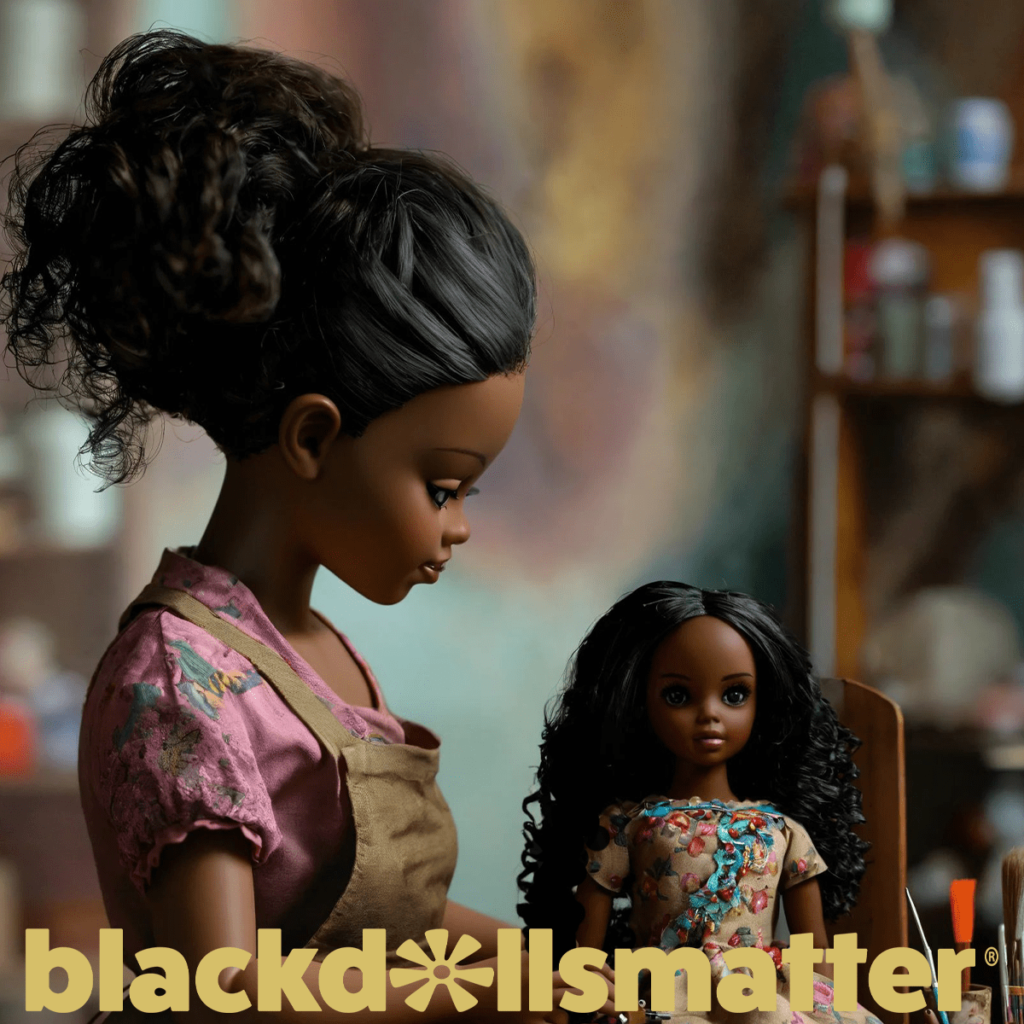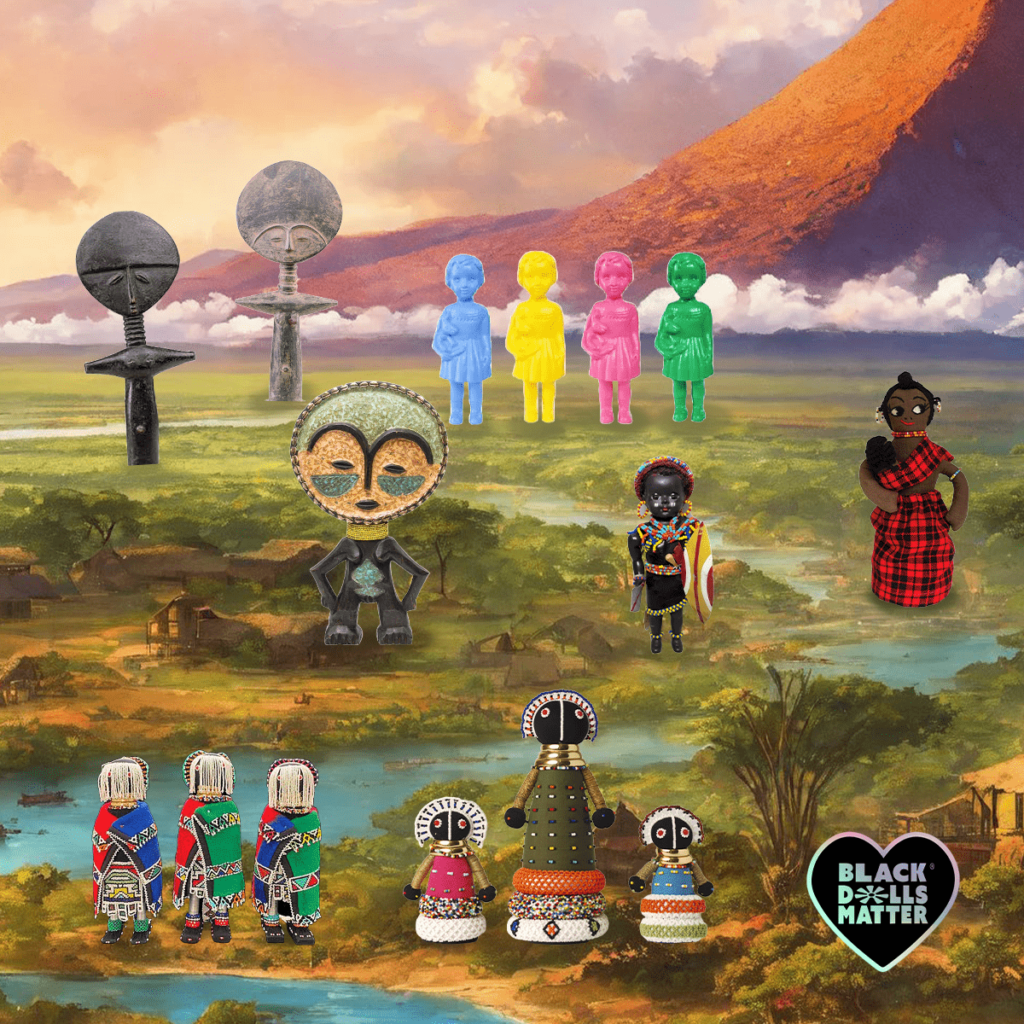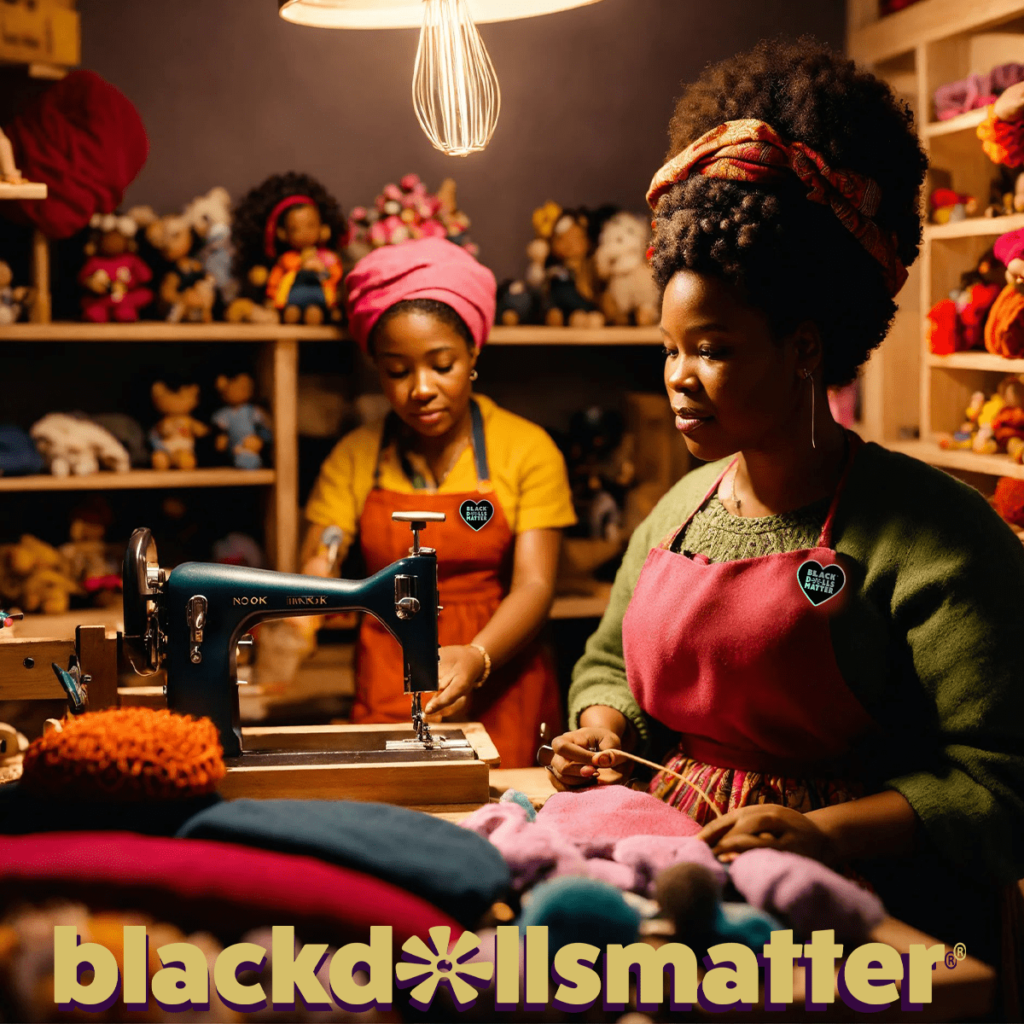
Empowering Generations
In tracing the lineage of Black Dolls Matter® and its resonance within the rich tapestry of black doll making, one is compelled to delve into the annals of history, where the art of crafting black dolls emerges as a testament to resilience, identity, and cultural affirmation. From the earliest manifestations of doll-making in ancient civilizations to the contemporary movements advocating for representation and inclusivity, the journey of black dolls reflects the evolving narratives of Black communities worldwide.
In antiquity, civilizations across Africa, Asia, and the Americas crafted dolls as symbols of fertility, protection, and spiritual connection. These early artifacts, often carved from wood, clay, or cloth, embodied the cultural ethos of their creators and served as vessels for storytelling and ritualistic practices. Within African cultures, dolls held profound significance, representing ancestral lineage, societal roles, and aspirations for future generations.

no infringement intended
As the transatlantic slave trade ravaged continents and forcibly displaced millions of Africans to the Americas, the art of black doll-making endured as a means of preserving cultural heritage and asserting identity in the face of oppression. Enslaved Africans in the New World ingeniously repurposed materials at hand, fashioning dolls from scraps of fabric, corn husks, or discarded items. These humble creations, often resembling miniature versions of their makers, provided solace, companionship, and a semblance of autonomy amidst the dehumanizing conditions of bondage.
In the postbellum era, following emancipation, black doll making experienced a renaissance as African American communities sought to reclaim their narrative and assert their humanity in a racially stratified society. Trailblazing artisans such as Leo Moss, Helen Bradley, and Sara Lee Creech emerged, creating intricately crafted black dolls that celebrated Black beauty, heritage, and resilience. These artisans defied prevailing stereotypes and imbued their creations with dignity, grace, and cultural pride, laying the foundation for a burgeoning black doll industry.
 The 20th century witnessed both strides and setbacks in the realm of black doll making. While mainstream manufacturers began producing racially diverse dolls in response to growing demand, systemic racism persisted, relegating black dolls to the margins of the toy market. In the face of such marginalization, grassroots initiatives and independent artisans emerged, championing the cause of representation and visibility. Organizations like Black Dolls Matter®, founded by visionary individuals like Mark Ruffin, catalyzed a renaissance in black doll culture, advocating for diversity, equity, and inclusion within the industry.
The 20th century witnessed both strides and setbacks in the realm of black doll making. While mainstream manufacturers began producing racially diverse dolls in response to growing demand, systemic racism persisted, relegating black dolls to the margins of the toy market. In the face of such marginalization, grassroots initiatives and independent artisans emerged, championing the cause of representation and visibility. Organizations like Black Dolls Matter®, founded by visionary individuals like Mark Ruffin, catalyzed a renaissance in black doll culture, advocating for diversity, equity, and inclusion within the industry.
Today, black doll making thrives as a vibrant and multifaceted art form, encompassing a myriad of styles, techniques, and perspectives. From traditional handcrafted dolls to contemporary collectibles, black doll makers continue to push boundaries, challenge stereotypes, and celebrate the beauty and diversity of Black experiences. Through their craftsmanship, they affirm the importance of representation, empower future generations, and contribute to a more inclusive and equitable world.
The history of Black Dolls Matter® and the art of black doll making is a testament to the enduring resilience and creativity of Black communities throughout the ages. From ancient rituals to modern movements, black dolls have served as powerful symbols of identity, resistance, and cultural affirmation. As we navigate the complexities of the present day, let us heed the lessons of the past and honor the legacy of black doll makers who have paved the way for a more just and inclusive future.